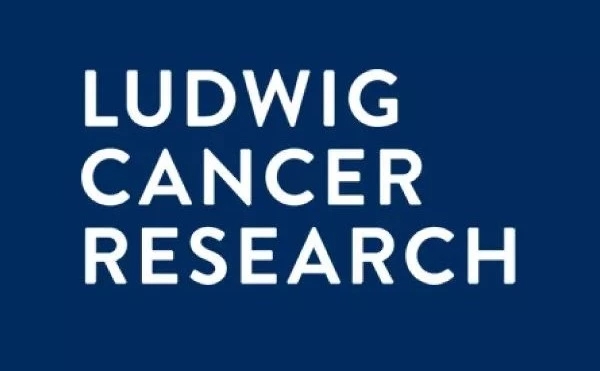How to improve the efficacy of T cell therapy on solid tumors?
March 19, 2018 Source: WuXi PharmaTech
Window._bd_share_config={ "common":{ "bdSnsKey":{ },"bdText":"","bdMini":"2","bdMiniList":false,"bdPic":"","bdStyle":" 0","bdSize":"16"},"share":{ }};with(document)0[(getElementsByTagName('head')[0]||body).appendChild(createElement('script')) .src='http://bdimg.share.baidu.com/static/api/js/share.js?v=89860593.js?cdnversion='+~(-new Date()/36e5)];One of the immunotherapy that has achieved many results in the field of cancer treatment in recent years is genetically engineered T-cell therapy, which extracts immune cells from the patient's own blood and modifies the T cells with anticancer effects so that they can be identified. And killing cancer cells, and then re-injecting them to the patient after in vitro expansion, thereby achieving the purpose of specifically killing cancer cells.
This therapy has been successful in blood cancers such as leukemia and lymphoma, but the effects on solid tumors are still not satisfactory. The researchers believe that the reason for this is that the mutation of the solid tumor is not enough to activate the body's immune system to kill it. If T cells can be extracted directly from tumor tissues, and then returned to the patient after in vitro culture, it may bring better results.

Recently, researchers from the Ludwig Institute for Cancer Research in Lausanne, Switzerland, found that T cells extracted from tumors have better anticancer effects than T cells extracted from blood. Published in Nature Communications.
There are T cells in epithelial ovarian tumors that are particularly good at identifying and killing cancer cells. Extracting these tumor infiltrating lymphocytes (TILs) and amplifying them and returning them to patients is not a new idea, but previous attempts have not been successful. According to Ludwig's scientist Dr. Alexandre Harari, when these cells grow in an in vitro culture environment, the proportion of cells that recognize cancer cell mutations often decreases. Therefore, the Ludwig team developed a new technology to identify those "highly reactive" TILs to achieve the effect of amplifying them in vitro rather than diluting them. Then, the researchers compared the activity of TIL extracted from tumors and T cells extracted from blood in targeting neoepitope, which are all fragments of antigenic mutations that remind the body. The immune system has cancer.
The researchers found that engineered killer TILs from ovarian tumors are better at locating newborn antigenic determinants than blood-derived T cells. Moreover, they found "highly reactive" killer T cells in approximately 90% of ovarian cancer patients, suggesting that such therapies have potential for widespread use. The next step for the Ludwig team will be to apply this discovery to other projects being carried out by the center to develop personalized treatments for cancer patients.
"The most important message from our findings is that in the future, when designing engineered cell-based therapies, tumor-specific TILs should be prioritized for low-mutation-loaded tumors, and their anticancer effects will be superior to those collected from peripheral blood. T cells," said Dr. George Coukos, director of the Ludwig Cancer Institute, "This new strategy to enrich TILs also provides patients with good treatment opportunities."

In addition to the Ludwig Cancer Institute, several research groups and biotechnology companies are also looking for ways to treat solid tumors with engineered immune cells, such as Lion Biotechnologies and the University of Texas MD Anderson Cancer Center (University of Texas MD). Anderson Cancer Center) is studying TIL therapy for pancreatic cancer, various sarcomas, and ovarian cancer. The two agencies signed an agreement in April 2017 to conduct a clinical trial to test the former TIL therapy while conducting preclinical studies of rare tumors. In addition, a team at the University of North Carolina is looking for a new CAR-T target to make therapy more effective for the most aggressive brain tumor, glioblastoma.
We hope that the efforts of these research institutions will make engineered cell therapy more effective and bring better disease improvement to cancer patients.
Reference material
[1] Tumor-derived T-cells show promise against ovarian cancer
[2] Nature Communications official website
Sweeteners are Food Additives that sweeten soft drinks. Sweeteners can be divided into nutritional sweeteners and non-nutritional sweeteners according to their nutritional value. According to its sweetness, it can be divided into low sweetness sweetness and high sweetness sweetness I flavor; According to its source can be divided into natural sweeteners and synthetic sweeteners. Natural sweeteners include stevia, grosvenin, licorice, disodium glycyrrhizinate, tripotassium glycyrrhizinate and trisodium.
Mogroside V,Compound sweetener,Stevia Leaf Extract,Monk Fruit Extract,Fructus Monordicae Extract
Xi'an Gawen Biotechnology Co., Ltd , https://www.amulyn-bio.com